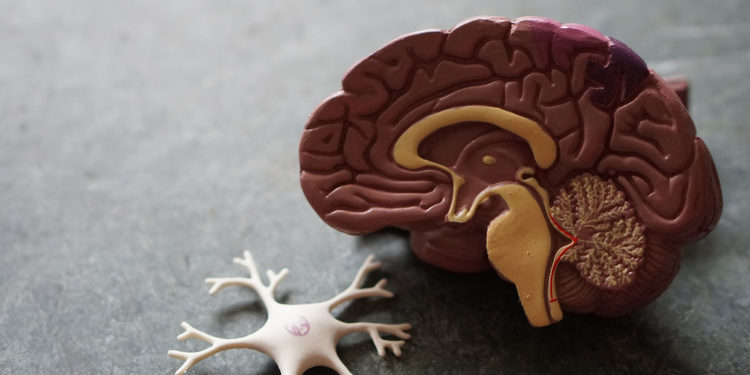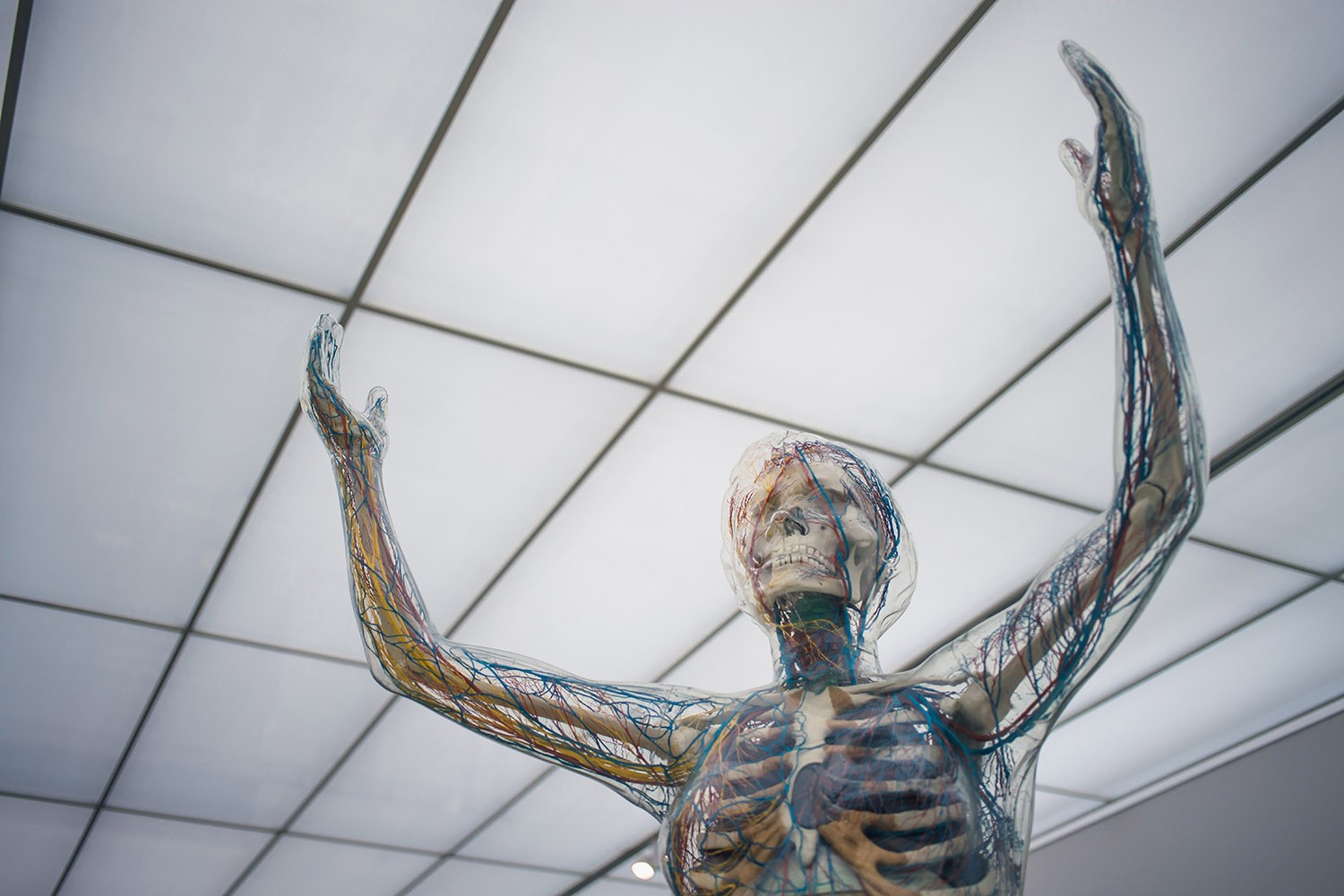Multiple Sclerosis Awareness Month

The Struggles of Today Give Strength for Tomorrow
Living with MS and recently contracting COVID, the combination wages daily battles that Lisa B. is determined to win!
Story by Ann Butenas
More than likely you have heard of multiple sclerosis, also referred to as MS, but are you fully familiar with this disease and how it affects people who have been diagnosed with it? MS is a chronic, frequently disabling disease of the central nervous system. It causes unpredictable symptoms which can range from numbness and tingling to paralysis and even blindness.
People living with MS may appear fine on the outside, as most MS symptoms are felt, not seen. Someone can look well in appearance, but on the inside, their body is throwing a fit. Couple that with a global pandemic that has touched everyone’s life in some way, shape or form, and the stage is set for a rather turbulent and unnerving experience for MS patients. It can be frightening enough to live in a world where an invisible virus is lurking around every conceivable corner, nook and cranny. Factor in a disease like MS, and the challenges – and anxieties – can be unprecedented.
With MS Awareness Week scheduled for March 7-13, 2021, we can encourage patients to share their stories so we can better understand life with MS and become inspired to spread the word and do what it takes to help change the world for those living with this disease. MS may be a part of who one is, but it certainly does not define that person. One MS patient revealed her story in a very poignant and thought-provoking manner.

Fourteen years ago on her 40th birthday, Lisa B. was given the unexpected news: she had MS. After she unexpectedly collapsed in front of her kids’ school one day, she made an appointment with a neurologist, who ordered an MRI and appropriate blood work, along with a spinal tap, the results of which led to her diagnosis. It was the first chapter in a long story that the disease often pens for Lisa, whether she likes the plot line or not. Fortunately, Lisa was quickly diagnosed and could therefore address her illness in a proactive manner.
“MS is like Covid in a way, as you can have 100 people with this disease and no two individuals may present alike in their symptoms,” she explained. When the coronavirus pandemic turned the world upside down this past year, Lisa had to ensure she knew exactly how to prepare for the unexpected.
“Covid remembered where my weakest link was,” noted Lisa. “For years my leg had not been numb, and recently I am experiencing the numbness again.”
Lisa, who tested positive for Covid in December 2020, initially chalked up her litany of aches and pains that month to simply growing older. At 54 years of age, she just assumed that was part of the deal associated with the aging process. She had been seeking regular treatments from a chiropractor for 18 months to help with various issues unrelated to Covid. Because MS is an inflammatory disease just as Covid is, Lisa was quite nervous when she contracted the virus because she didn’t know what types of symptoms would rear their ugly heads that would either mimic her MS symptoms and/or grossly conflict with them.
“I was nervous when I got Covid,” she recalled. “At first I felt like I had pins and needles in my left eye. Not so much pain, however. That made me nervous because I have had to deal with optic neuritis because of MS, and I didn’t want to struggle with that issue again.”
Lisa believes she contracted the virus at her place of employment. As a result, she had to quarantine over the holidays alone in her room on the second floor of her family home. She kept a cooler outside the bedroom door into which her husband put her meals.
Although Lisa never had to go into the hospital, she did suffer from certain symptoms such as major headaches, a stuffy nose, loss of taste and smell, random rashes, tingling sensations in her nose and lips, and the first two weeks kept her sick in bed. She still struggles with blurry vision that comes and goes, as well as with extreme exhaustion.
“It took a while for my family to feel safe around me, so for 14 days I closed myself in,” she said. “For me the worst part was the anxiety of what could happen. The night before I was tested I just felt like a cold was coming on.”
As an MS patient, a huge concern is whether or not one will be able to maintain their medication regimen and regular health care visits due to the strict protocols that surround the virus. Lisa was scheduled for her semi-annual injection for her disease on January 18, 2021. In the past she tried various medications. a daily shot, a weekly shot, a monthly infusion and now a semiannual infusion. Throughout the month of December, Lisa maintained strict adherence to the pillars of protocol for infectious disease control: mask wearing, hand washing and social distancing. She still continues these practices.
“I was supposed to have a treatment last May that we moved to July due to Covid,” she noted. Lisa was fortunate enough to get her most recent treatment this past January. “I was glad to get it then, as when you have infusion therapy you also get steroids which can help with the inflammation associated with Covid.” (Because she had her January infusion she now has to wait 3 months to get the Covid vaccine due to it bringing her B cells to zero. There is also not a lot known if she will keep the antibodies from having Covid because of her infusion.)

Lisa is still not at work and doesn’t know when she’ll return. She takes this virus quite seriously, and she still struggles with bouts of fatigue. Sometimes other unusual symptoms arise without warning or explanation.
“Just a few weeks ago my knee was swollen to the size of a melon, and that lasted four days,” she noted. “Every day it’s something different. I just never know what to expect. It’s tough, for people with MS (who take autoimmune medications). It makes us feel less safe at work or even in public, which is why I always wear a mask. I do feel somewhat isolated now, so I come up with creative ways to stay together, such as using FaceTime to connect with friends.”
Lisa stressed that one of the hardest parts of Covid is the anxiety of what could happen due to the autoimmune drugs she takes.
“It’s very random,” she said. “If you’ve been exposed or sick in any way, I urge you to quarantine, as all symptoms are different for everyone. My voice is still raspy and my nose is stuffed up. However, I’m so l grateful I was not hospitalized and my family and friends surrounded me with love,” she reflected.
Lisa admitted after she was initially diagnosed with the virus she felt ashamed. She thought people would judge her for what she might have done to get sick. She cautioned it is highly serious but if you have an autoimmune disease like MS and on autoimmune drugs it makes it even more serious.
You can help others learn about MS by staying informed, becoming an activist or even doing some fundraising. Look for opportunities in your area to connect with others to find an opportunity that matches your passions and desires to increase awareness of MS.
For more information, go online at nationalmssociety.org/Get-Involved/Raise-Awareness#section-3






